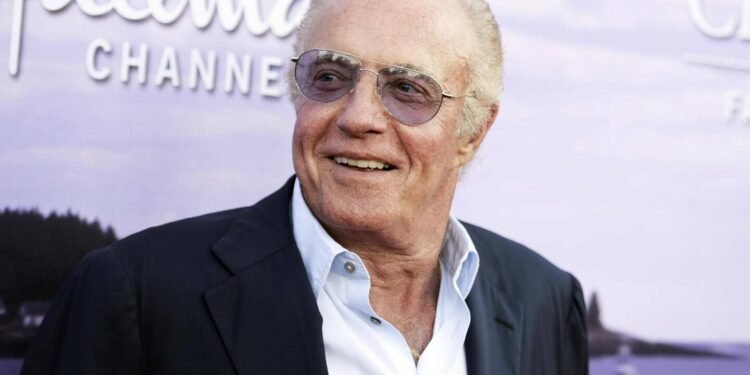James Caan’s story isn’t just about fame, fortune, and old Hollywood stories. It’s really the story of a working actor finding his place, taking a few hard knocks, and always showing up for another round.
If you’ve watched movies for any length of time, you know his face—even if you don’t always realize just how many places you’ve seen it. Caan’s career had some high peaks and low valleys, but his run in Hollywood was one of the most memorable in the business.
The Big Break: Playing Sonny Corleone in ‘The Godfather’
Let’s start with the moment everyone thinks of first. It’s 1972, and Francis Ford Coppola’s *The Godfather* is about to become the kind of movie that people talk about for generations. Caan played Santino “Sonny” Corleone, the loud, fiery son of Marlon Brando’s Don Vito. This part isn’t just a spot in the credits—it’s a role that comes loaded with anger, energy, and a real sense of family.
That energy worked. Critics loved it, audiences noticed, and Caan suddenly went from being a strong working actor to a serious contender. The Academy nominated him for Best Supporting Actor. Admittedly, Sonny doesn’t make it to the end of the movie, but Caan’s take on Sonny stuck with people. Even decades later, you hear writers or actors reference that infamous tollbooth scene.
Given how legendary the first film was, Coppola brought Caan back for *The Godfather Part II*—only this time, it was in a flashback. Caan later joked that he got paid as much for the flashback as he did for the original role, a rare Hollywood win. It’s a small piece of movie history that says a lot about his charisma at the time.
Branching Out—And Showing Range
If you stop at *The Godfather*, you don’t get a full sense of what Caan could do. Right before *The Godfather*, he starred in *Brian’s Song* (1971) as the doomed football player Brian Piccolo. It’s a made-for-TV movie, not a feature, but his performance struck a chord. People cried. Sports fans and non-fans both tuned in. The role got him an Emmy nomination—his first real dose of award buzz.
Not long after, he worked on films like *The Gambler* (1974). Here, he played a literature professor with a life-derailing gambling problem—miles away from mob heavies. Caan was convincing as a character on the edge, and the Golden Globe folks noticed. He scored another nomination.
He didn’t stay in tough-guy mode for long; *Funny Lady* (1975) paired him opposite Barbra Streisand in a big musical sequel to *Funny Girl*. Again, he landed a Golden Globe nomination for his performance. Switching from drama to comedy to romance, he refused to be boxed in by any one role.
Family and Life Outside the Spotlight
Caan’s story isn’t just movie trivia. He had a complicated, open life off-camera. He was married several times and went through a few very public divorces. His son, Alexander James Caan, followed him into creative fields, further continuing that mix of business and entertainment. You can read more about Alexander James Caan and how the next generation is navigating the spotlight in Los Angeles.
In interviews, Caan could be blunt—he never shied away from talking about mistakes, old regrets, or frustrations with Hollywood. That made him relatable, especially to actors who felt the pressure to succeed on and off the set.
Caan’s Place in Hollywood Memory
What stays with people is Caan’s direct style. There’s a realness to his characters, even the “bad guys.” He made them feel human, even when they were making bad choices. Directors loved him for that—he wasn’t just another tough guy, but someone who could snap from menace to empathy in a few seconds.
Film critics and fans still pull out examples from Caan’s work to show what “movie star energy” looks like. That includes first-time viewers who spot him in *Elf*, and older fans who remember Sonny’s jaw-dropping exit from *The Godfather*.
By the time he died in 2022, Caan had become something of an old friend to movie fans. He didn’t have just one kind of role that followed him around—he had a body of work that spanned decades and genres. He was included in industry tributes, “best-of” lists, and social media retrospectives.
Lasting Impact and What He Leaves Behind
James Caan didn’t always do the expected thing, and he sometimes paid for it—with rough patches and lost opportunities. Still, he stuck around. He became known for showing up and for trying out new genres, from noir and crime to broad comedy.
His range, and that willingness to go from gritty drama to family-friendly fare, is why he’s still talked about. Younger actors sometimes cite him as a touchstone, and older fans still mention how, in every role, Caan managed to stand out just enough.
Even after his death, his legacy is still active. His roles pop up regularly on lists of Hollywood’s greatest movies. Networks air his classics, and streaming platforms introduce him to new viewers all over again.
If you’re interested in the business and personal stories behind the name, sites like TheBusinessTarget keep up with ongoing news about the Caan family and their place in entertainment.






